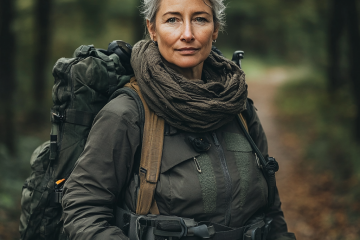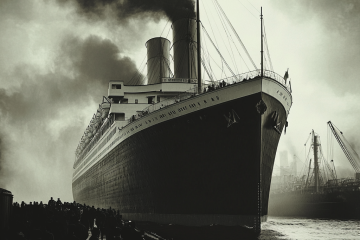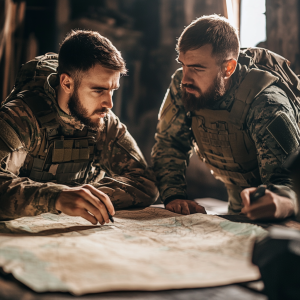
Learn the lay of the land before venturing into the operation
So, you’ve decided to dip your toes into the world of preparedness. Kudos! But before you go off the deep end and start hoarding canned beans like they’re going out of style, let’s take a step back and look at the big picture.
The Preparedness Roadmap: More Than Just Food
When most people think of preparedness, their minds immediately jump to stockpiling food. But here’s a little secret: preparedness is about so much more than just filling your pantry. It’s like assuming a road trip is all about the snacks – sure, they’re important, but you’ll be in trouble if that’s all you focus on.
The Importance of Strategy
Any good strategist knows that before embarking on a mission-critical operation, you need to study the map. And isn’t preparedness the ultimate mission-critical operation? It’s about safeguarding your future, after all.
So, what map should you be looking at? Enter the 10 Principles of Preparedness – your perfectly prioritized preparedness plan. (Try saying that five times fast!)
The 10 Principles of Preparedness: Your Ultimate Guide
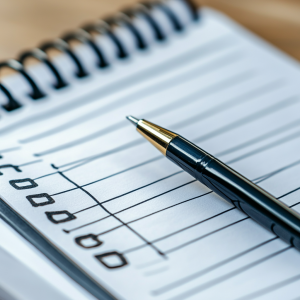
Have a prioritized checklist before venturing into preparedness. Priority is key.
These principles are like the Swiss Army knife of preparedness – versatile, comprehensive, and indispensable. They’re arranged in order of priority, ensuring you don’t overinvest in one area while neglecting another crucial aspect. Let’s break them down:
- Spiritual Preparedness: Identify your value system and your true north compass. It’s about knowing what you stand for when the going gets tough. Like the song says, if you don’t stand for something, you’ll fall for everything. Sometimes your truth has to come from a source other than the loud voices around you. That’s where your spiritual preparedness comes in.
- Mental Preparedness: Sharpen your mind with skills and fortitude needed to weather a crisis. Remember, your brain is your most valuable tool. Practice drills, skills, and replay in your mind what you’ll do under various circumstances and then practice so that it’s a part of your muscle memory.
- Physical Preparedness: This isn’t just about being fit enough to outrun zombies (though that’s a plus. Ha!). It also includes personal security. Can you walk 30 miles if need be? Can you do so with your bug-out bag strapped on? Is the rest of your family ready for such a trek if things go south and you have to leave your home?
- Medical Preparedness: From basic hygiene to advanced medical care and necessary medications. Because band-aids and aspirin only get you so far. Approximately 25% of Americans lack basic first aid skills. While many people might feel somewhat confident in handling minor injuries, a significant portion of the population feels unprepared to handle more serious emergencies. For instance, only about half of Americans feel confident performing CPR or using an automated external defibrillator (AED), which are critical in life-threatening situations. Additionally, a large number of people lack the training needed to properly address severe bleeding, choking, or other urgent medical scenarios. How would you feel if you were on the receiving end of that? Or how would you be mentally impacted if you could have saved a life knowing that if you just had a little more training you could make a difference?
- Clothing and Shelter Preparedness: Pretty self-explanatory. You need to stay warm, dry, and protected from the elements. You’ll die of hypothermia before you will dehydration and starvation. Shelter preparedness also deals with the security of your shelter. Situational awareness, etc.
-
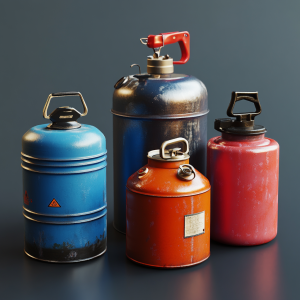
Fuel Preparedness is Priority #7 in Preparedness.
6. Fuel Preparedness: Can’t boil water, stay warm, or cook food without it. Fuel is the unsung hero of preparedness. Do you have the resources you need to get what you need or have it on hand?
- Water Preparedness: Comes before food for a reason. It’s essential for hygiene, medical care, cleaning, and of course, staying alive. My rule is “If you don’t have the water, then you don’t have to food.” The same could be said for medical supplies, etc.
- Food Preparedness: Yeah, see? We’re just now getting to food, and yet food is what you hear most people talk about.
Buy what you eat, eat what you buy, and rotate your stock. And please, for the love of taste buds everywhere, plan for more than just beans and rice. (Appetite fatigue is REAL!) Check out my #1 Bestselling Book in Survival and Emergency Preparedness categories on Amazon, “Neanderthals in the Kitchen,” for a deep dive into kitchen preparedness. I haven’t heard a single complaint about it yet. You’re likely to enjoy it as well. I don’t know. Maybe you’ll be the exception. *wink* - Financial Preparedness: Consider bartering, different types of currency, and savings. Because even in tough times, the economy doesn’t completely disappear it just transfers to a different time. Mark my words, ammo will be a currency of its own in a society down scenario.
- Communication Preparedness: Last but not least, staying connected and informed is crucial. Plan on ways that you’re going to do that. Radios will be a vital commodity in a society down scenario.
Your Personalized Preparedness Journey
Remember, everyone’s preparedness journey is unique. You might come across people laser-focused on one aspect, like food storage. But their situation isn’t yours. Maybe they’ve got everything else sorted and are just filling in the gaps.
The beauty of the 10 Principles is that they give you a comprehensive roadmap. They ensure you’re not putting all your preparedness eggs in one basket (or bunker).

Communication preparedness is #10 principle of preparedness
Preparedness isn’t about panic-buying or following the crowd. It’s about thoughtful, balanced preparation across all aspects of life. The 10 Principles of Preparedness are your guide to navigating this journey confidently and effectively.
So before you start stockpiling canned goods or researching bunker blueprints, take a moment to familiarize yourself with these principles. They’re the roadmap you can stake your life on – literally.
Remember, in the world of preparedness, knowledge truly is power. And now, armed with the 10 Principles, you’re well on your way to becoming a preparedness pro. Stay safe, stay prepared, and may your journey be as smooth as a well-rotated can of soup!
Join us on Facebook at www.facebook.com/preparednesspro
